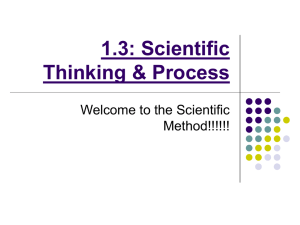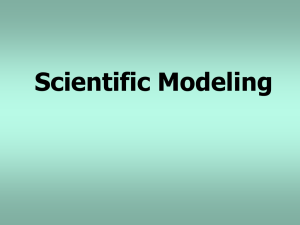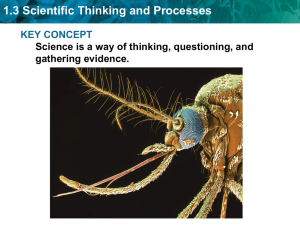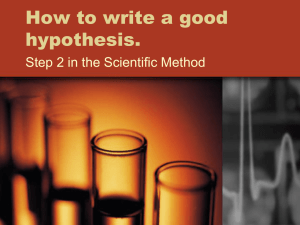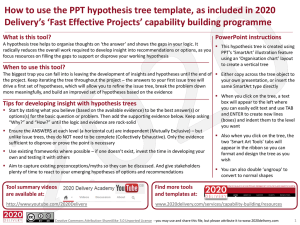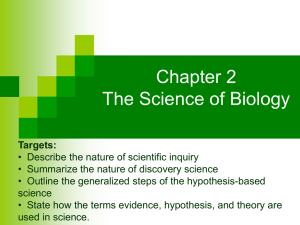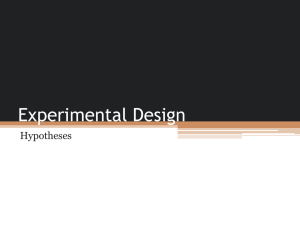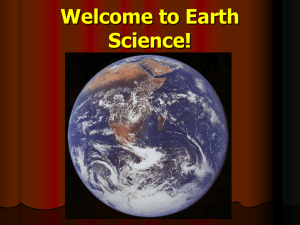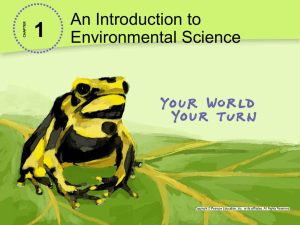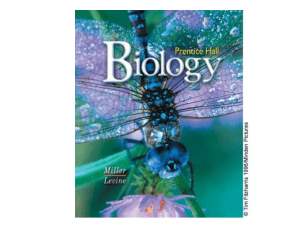File - Mrs. Dearden`s Classes
advertisement
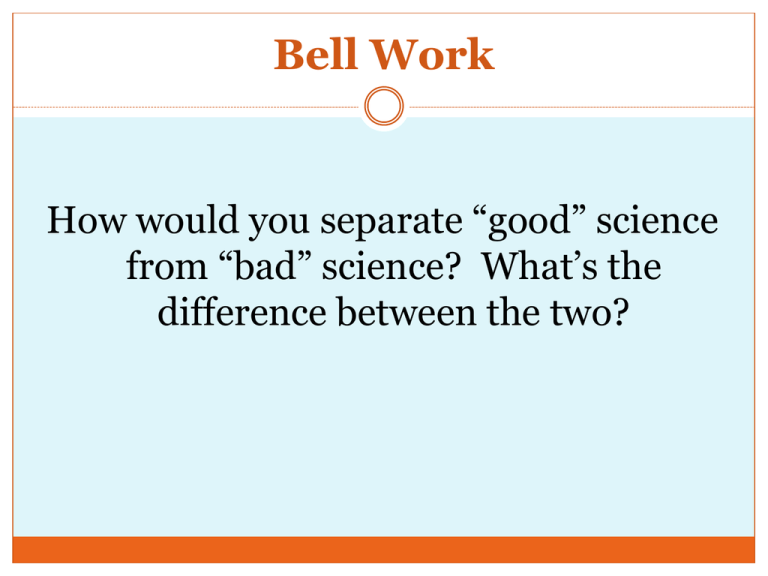
Bell Work How would you separate “good” science from “bad” science? What’s the difference between the two? Knowledge Claim Statements Better stock market decisions are made when the planets Venus, Earth, and Mars are aligned. B. Atoms are the smallest particles of matter that exist. C. Albert Einstein is the greatest physicist of the 20th century! D. If you break a mirror, you will have seven years of bad luck. E. The earth is flat. Anybody can see that! F. All living things are composed of one or more cells. G. Taking Vitamin C will prevent the common cold. Linus Pauling, who discovered the structure of Vitamin C says it does. H. There is a God, I know this because I can feel Him in my soul and because I depend upon Him every day! I. The rate of acceleration of all falling objects on earth is constant. A. Least Scientific Most Scientific Least Scientific C. D. E. H. A. G. Most Scientific B. F. I. for me… A body of scientific information A set of procedures by which hypotheses are generated & tested A way of questioning the truthfulness of what we know Accepted Definition The process by which we try to understand how the natural world works and how it came to be that way. The Nature of Science WHAT SCIENCE IS, WHAT IT IS NOT, AND HOW IT WORKS! Directions 1. Each group will receive an envelope containing 16 checks. When directed, remove 4 of the checks from the envelope. 2. By observing the checks, your group must formulate a hypothesis explaining the events in the life of the person who wrote them . Note: I don’t want you to simply record what the check was written for, or the date in which it was written. Directions 1. When directed remove 4 more checks from the envelope and use this information to formulate a second hypothesis. 2. Remove 2 more checks and Hypothesis Hypothesis 1: 1: Hypothesis 2: Hypothesis 2: create a third hypothesis. 3. Choose a spokesperson to present the group’s final hypothesis to the class. Hypothesis 3: Bell Work How would you go about eliminating personal bias in an experiment? By not allowing you to see all the checks, what does this reveal about science? 1. Scientists never have all the information they need Scientists use observations (made w/ the 5 senses) to make inferences (logical conclusions) The “best” explanation for the moment is based upon existing data= hypothesis Not all hypotheses stand the test of time I don’t know the exact story of this individual, what does this reveal about science? 2. Science can’t be proven! Can’t control every variable or test every aspect of phenomenon If an idea stands the test of time, it is more likely an accurate explanation 3. Scientific methods can’t answer all questions Goal of science= to provide natural explanations for events in the natural world Those explanations are used to understand patterns in nature & to make predictions about natural events How did your story change each time you drew new checks? What made your story change? 4. Science is durable but tentative when new information is discovered. Durable- scientific conclusions are valuable and long lasting Hypotheses Theories (Explain how natural phenomenon occurs) Theories Laws (Describes a natural phenomenon) Tentative- scientific conclusions are subject to change New discoveries may show previous hypotheses as incorrect How many Pretzels in a min.? Give me some examples of theories or hypotheses that have been modified or rejected in the past. Past Theory: Ptolemy & Geocentrism Accepted Theory: Copernican Heliocentrism Lunar Eclipse View of the Horizon Images from Space Center of Gravity Spontaneous Generation Louis Pasteur Maggots came spontaneously from rotting meat? Maggots from flies Redi 1668 Microorganisms from the air Needham 1745 Spallanzi 1745 Microorganisms from the air Pasteur 1859 How did you interpret and use observations to come to your conclusions? 5. Science is Empirical Meaning that science is based on observation, experience, and experimentation that can be reproduced How did your prior knowledge affect your inferences? 6. Science has a subjective element Two scientists looking at the same data may see and respond differently based on prior experiences and beliefs Science community employs a system of checks and balances peer review Scientific Research Additional observation Recommendations evaluation Further Experimentation Critical Comments Published Results What scientific attitudes led to your conclusion? 7. Good scientists share scientific attitudes: Curiosity Skepticism Open-mindedness Creativity 1. 2. 3. 4. 5. 6. 7. 8. __ F Experiments are carried out to prove cause and effect relationships. __ F Science is completely objective. __ T Scientific ideas are tentative and can be modified or disproved, but never proved. F All scientific ideas are discovered and tested by __ controlled experiments. F Science can discover absolute truth. __ T Science relies on empirical evidence. __ T All scientists are prone to personal bias. __ __ T Every scientific theory is subject to revision if new data becomes available. Homework- Myths of Science Four A Questions How would you abbreviate (summarize) what the author is saying? What do you agree with in this reading? What do you want to argue with in this reading? What parts of the article help you adapt your thinking ? Bell Ringer Galileo’s heliocentric theory of the solar system was originally thought to be heresy. Which of the following is not necessary for a scientific theory to be accepted? A. Scientists and students apply the theory in many contexts. B. The tests leading to the theory are repeated. C. The theory is tested over many years. D. All scientists agree that the theory is correct. Bell Work What does it mean when we say science is tentative but durable?

